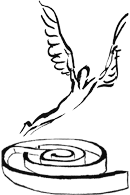|
Here are short letters that you can easily print and mail. Select the address and text; copy and paste them into Word or whatever you use for writing. Arrange on the page to your liking. Even better is to spend a few moments individualizing the text.
You could change words, add your own remarks, use different points
from the fuller information given. Get back to us if you have a question. Or if you have the luck to receive a reply—it could be important. We'd love to know that you've written. —Guy Ottewell and Tilly Lavenás, founder members of the Amnesty International groups of Greenville, South Carolina, and Lyme Regis, England. |
|
YOU CAN RECEIVE NEW APPEALS BY EMAIL. Please go to http://groups.google.com/group/humanrightsletters If you don't see a "Join this group" link, or if you
have received an email about “Ready-made human rights letters”,
you are already a member. GET FRIENDS TO JOIN! |
|
Postage for one sheet (mark envelope AIRMAIL): |
|
These “remhurls” have been sent by email to a list of friends at irregular intervals (monthly, sometimes less, sometimes more) since 1996. Since 2008 we have used this better method of distribution. We are responsible for them; they are not an official production of Amnesty International, Survival International, or any other of our sources. |
|
You may submit a letter appeal for possible use. Please make it easy for us: Keep it short. Provide a summary of the fuller information (which we like to get in chronological order). Expect to be edited. Provide a web link if possible, or a citation of the authority for the information, e.g. for an Amnesty International Urgent Action, its number, date, and "write no later than" date. Send to guy@universalworkshop.com |
SEE YELLOW BOX AT LEFT
|
More about Thao Moua and Pa Fue Khang If you are in Europe, you could send a copy of your letter to Laos's
diplomatic mission, which is in Paris: You can send cards, with simple non-political greetings, to Thao
Moua or Pa Fue Khang:
Information from Amnesty International's Individuals
at Risk Case-Sheet 2007/08 of November 2007, and Greetings Card Campaign
Action 1 Nov. 2007—31 Jan. 2008: The genocide of the Hmong From Amnesty International's background material: "Those [Hmong] who have assisted visiting journalists, or have connections to these Hmong groups, are themselves at risk of serious human rights abuses. In Laos, a one-party state that tightly restricts the rights to freedom of expression, association and assembly, opposition to the government is not permitted. The state retains control of the media, religious organizations, and trade unions. There are no independent domestic non-government organisations, and international human rights monitors are not permitted free access to the country. Trial proceedings in political cases fail to meet international standards; conditions in police custody and prisons are harsh, with reports of torture and ill-treatment. Although Laos signed the International Covenant on Civil and political Rights and the International Covenant on Economic, Social and Cultural Rights in 2001, it has to date failed to take sufficient necessary steps towards ratification and full implementation. (For more information see Amnesty International's report, Lao people's democratic Republic: Hiding in the Jungle—Hmong under threat, Amnesty International Index: ASA 26/003/2007)." The case of Thao Moua and Pa Fue Khang is particularly important: it brought to light the oppression of the Hmong in Laos. Click here for further very interesting information about the Hmong in Laos, written by Duncan Booth. |

